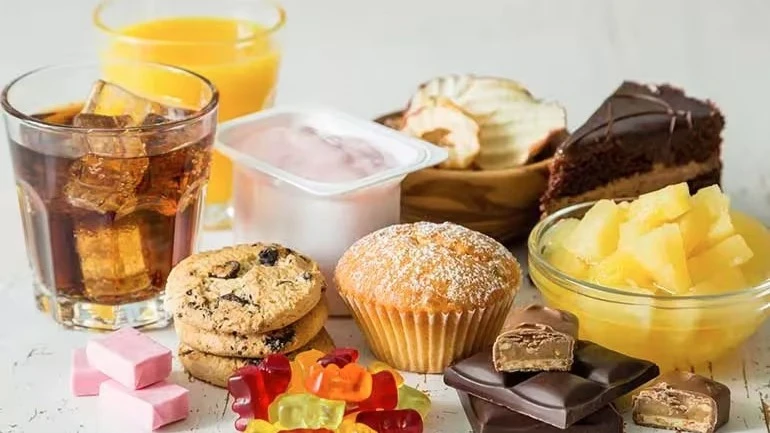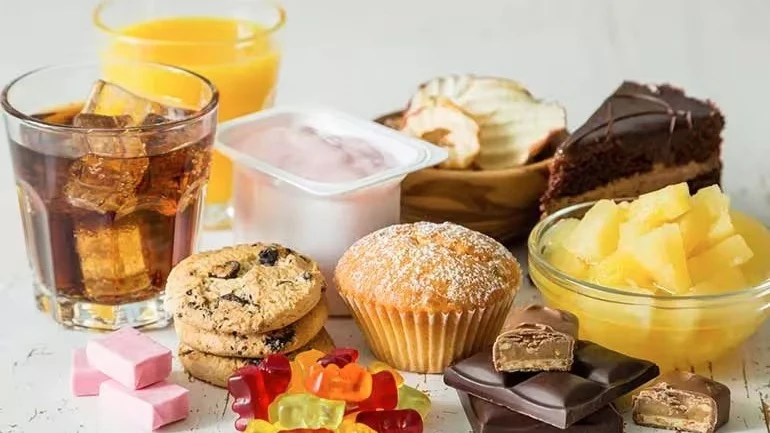Why health experts discourage intake of sweets, sugary foodstuffs

PARENTS often show how close they are to their children and would like them to feel loved and taken care of. Some parents take their children to entertainment centres or to the beach where they can meet their peers, have fun, swim and refresh.
While they are at entertainment centres or on the beach the parents may buy their children some sweets, sugary foodstuffs, sweetened beverages or ultra-processed foodstuffs which children like very much.
Other parents buy their children those sweets, sugary foodstuffs, sweetened beverages or ultra-processed foodstuffs on their way back home from work. Children often appreciate what their parents buy them, and whenever their parents are away, they expect them to come home with something light they can eat, chew or drink, and share with their peers.
Thus, in some families, children are used to consuming sweets, sugary foodstuffs, sweetened beverages or ultra-processed foodstuffs. What a caring habit! But what do health experts say about sweets, sugary foodstuffs, sweetened beverages or ultra-processed foodstuffs children are exposed to? Are they healthy or unhealthy for children?
In 2023, the Ministry of Health through Tanzania Food and Nutrition (TFNC) with technical and financial support from Food and Agriculture Organisation of the United Nations (FAO) published a Mainland Tanzania Food-Based Dietary Guidelines: Technical Recommendations manual.
It was developed as the first national Food-Based Dietary Guidelines (FBDGs) for a healthy population through a broad consultative process. The manual targets nutrition and health professionals, educators, policymakers, researchers and other stakeholders interested in promoting nutrition and health in Tanzania.
The purpose is to guide the target audience to deliver adequate support and counselling to members of the public on lifestyle behaviour and appropriate dietary practices to ensure they eat only healthy foodstuffs.
“Technical recommendations provide evidence-based guidance and advice to [members of] the public to encourage healthy eating and provide harmonised nutrition messages…[based] on six food groups as well as guidance on safe food preparation and storage, [cautious] alcohol and tobacco use, and physical activity,” says the manual.
It points out that while the intake of healthy snacks increases the consumption of essential nutrients required for growth and development, the consumption of unhealthy snacks increases health risks.
“Children do not need sweets, sugary drinks or ultra-processed snacks. While these may be readily available and convenient [for use], they only provide empty calories – meaning energy without valuable nutrients – and displace healthy foodstuffs that support growth and development,” the manual says.
It recommends the intake of healthy snacks instead of deep-fried foodstuffs, sweets, sweetened beverages or ultra-processed foodstuffs. According to the manual, the intake of more ultra-processed foodstuffs is associated with higher overall cancer risk (including breast cancer risk), thus reducing the overall intake of ultra-processed foodstuffs is highly recommended.
The manual lists the following as examples of ultra-processed foodstuffs: carbonated drinks, soft drinks, soda beverages, sweetened drinks such as concentrates, juices, including fruit flavoured juices, energy drinks, fruit drinks, milk drinks, fruit yoghurts, cocoa drinks, and ready to drink tea, coffee and hot chocolate mix.
Others are long shelf-life packaged baked products like biscuits, cookies, cakes, pastries, pies, crackers, cake mixes, premixed pancakes, mass-produced packaged bread, buns (long life), and breakfast cereals. There are also crisps, chips and other sweet, fatty or salty packaged snacks, candy, chocolates, and some energy bars.
“Most restaurant fast food products are ultra-processed foodstuffs as they use hydrogenated oils. Although fast-food chips may look much the same as home-cooked chips, their formulations and the ingredients used in their pre-preparation and cooking render them ultra-processed,” the manual says.
An open education resource (OER) defines hydrogenated “oil as liquid oil chemically changed by adding hydrogen to become a solid or semi-solid fat with a longer shelf life, used in foodstuffs like margarine and baked products.”
Citing a study conducted by Hu and Malik (2010), the manual notes: “It is known that the consumption of sugar-sweetened beverages contributes to the prevalence of type-2 diabetes, partly due to weight gain. It can also be a result of high dietary glycaemic load, leading to inflammation, insulin resistance and impaired beta-cell function.”
It says the implementation of technical recommendations will improve the nutrition situation by addressing diet-related conditions and lifestyle-related problems. It will also help achieve the specific outcomes of the National Multisectoral Nutrition Action Plan (NMNAP).
In its technical recommendations, the manual suggests that besides balanced meals, children should consume healthy snacks such as fresh fruit (bananas, mangos, apples, oranges, guavas), vegetables [amaranth (mchicha), sweet potato leaves (matembele), pawpaws, mangoes, yellow pumpkins, pumpkin flowers and carrots for vitamin A and other key micronutrients], or nuts and seeds (peanuts, cashew nuts, sesame seeds, pumpkin seeds).
Vegetables include root vegetables such as radishes, carrots, beetroots, and onions. “Vegetables are a great source of vitamins such as pro-vitamin A, vitamin C, and folic acid (one of the B vitamins). They are also rich in minerals such as iron, potassium, and magnesium, and provide dietary fibres as well as phytochemicals,” the manual says.
It suffices to say that although it is good to show children that are loved and taken care of, health experts recommend avoiding exposing children to unhealthy snacks because they are detrimental to their wellbeing. So, let us take care!
Top Headlines
© 2025 IPPMEDIA.COM. ALL RIGHTS RESERVED

























